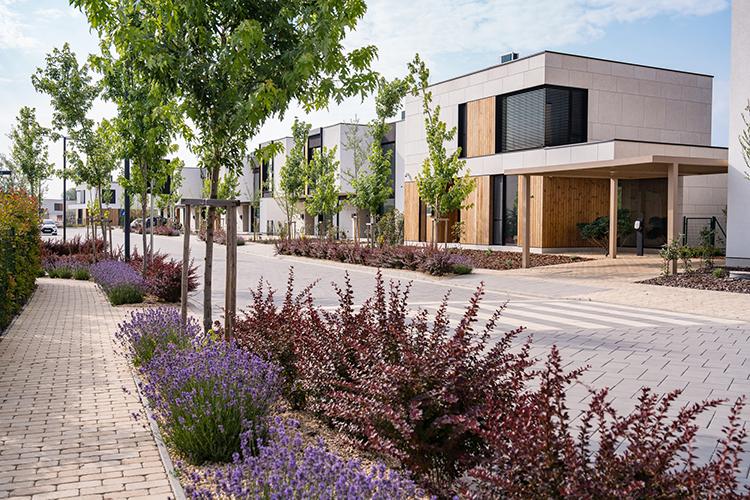2025-07-29
residential

In an exclusive CIJ EUROPE interview, Alex Skouras, Managing Partner at Alesonor, provided deep insight into the philosophy, evolution, and future of the company’s landmark sustainable residential development-Amber Forest, on the outskirts of Bucharest, as well as the upcoming new project. Alesonor has been present in the Romanian real estate market since 2003. Initially, the company was active in multiple sectors including commercial, industrial and office developments, primarily focused on central Bucharest. But in 2014–2015, the developer took a pioneering leap into the then-overlooked northern suburban area with the Amber Gardens project, the first large scale residential project in Romania with luxury green homes that integrates bioclimatic design and follows the passive house standard, developed in a 5-hectare land in Tunari. Amber Gardens was sold out entirely and is now home to numerous families. Skouras pointed out that, at that time, only 9% of Bucharest’s population lived outside the city limits—compared to 25–47% in peer cities like Warsaw and Budapest. Alesonor identified this as an opportunity to create a new kind of community, one that was integrated with nature and supported a higher quality of life. The COVID-19 pandemic served as a turning point. “It worked like a catalyst,” Skouras said. “People realized they were spending more time at home and were dissatisfied with inadequate light, poor air quality, and a lack of space.” This shift accelerated the desire for healthier, greener, and more community-driven lifestyles—needs Alesonor had been designing for years. Amber Gardens was built as Romania’s first residential development of net-zero energy homes. Initially, clients struggled to understand the technical innovations—photovoltaic panels, heat pumps, and thick thermal insulation—but today, the market has matured. “Now clients come in asking about heat pumps and bioclimatic design. There’s a clear shift in awareness,” said Skouras. That feedback, as well as multiple market studies, helped shape Amber Forest, a 31-hectare development currently under construction. Beyond energy-efficient homes, Amber Forest incorporates a 360-degree ecosystem: school campus including a school, kindergarten, afterschool, and advanced sports infrastructure, sports club, co-working hub, commercial, leisure and medical facilities. “We’ve spoken with over 10,000 families, and the top reasons for choosing Amber were community and sustainability,” Skouras explained. “People want to raise their children in an environment where they share similar values with their neighbours.” The development’s horizontal structure posed financing challenges. Skouras emphasized that banks still struggle to understand horizontal, multi-contractor development models that require heavy upfront investment in infrastructure before units are even built. “It’s like a production line,” he noted, describing how construction progresses in batches to keep timelines and quality under control. Alesonor’s commitment to sustainability and community has been recognized through international certification. Amber Forest became the first fully LEED Platinum certified neighbourhood in Europe under the LEED for Cities and Communities scheme (LEED v4.1 Communities: Plan and Design Platinum Certification). The development includes more than 70,000 trees and shrubs, underground waste collection systems, separate dog parks for large and small breeds, and 5.5 kilometres of running and bike lanes. The developer focused on measuring and tracking outcomes in several key areas, including water savings, energy efficiency, low greenhouse gas emissions, waste management, material resource management, efficient transportation, sustainable site development, biodiversity, low-density development and high quality of life, including education, health, safety, prosperity and equitability. Housing typologies range from row houses and townhouses to standalone villas and boutique low-rise apartment buildings. Alesonor has resisted full customization to maintain consistency and control, instead offering over 20 house and 30 apartment types that reflect market needs and family budgets. “We’re not building luxury. We’re building wellness living,” Skouras clarified. One of the most compelling aspects of Alesonor’s vision is its focus on multi-generational living. Some buyers of Amber Gardens homes have purchased adjacent apartments in Amber Forest for elderly parents or grown children, fostering extended family networks within walking distance. This idea of “home and happy from Monday to Sunday” is central to the concept. Looking ahead, Alesonor is exploring additional land acquisitions for future projects. “We strongly believe in the Romanian market and in the importance of developing communities, not just real estate,” Skouras said. He emphasized that community can’t be manufactured—it must be designed with intention, from infrastructure and landscaping to services and social programming. In an era of increasing awareness around environmental impact and quality of life, Alesonor’s model could become a new standard in urban expansion. “It’s not about the house anymore,” Skouras concluded. “It’s about how people live, what they value, and how we support that through design and planning.” Alesonor’s developments—once seen as ambitious—now stand as proof that a healthier, more connected future is not only possible, but in high demand. © 2025 www.cijeurope.com

